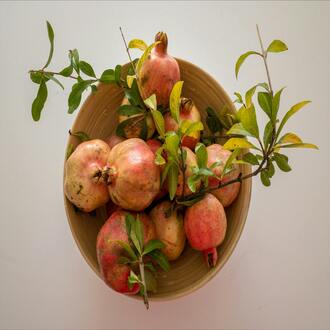ByOnlinecourses55

Vegan cuisine - nutrition holistic
Hello to all food lovers and culinary curious! Have you ever wondered what vegan cuisine is and why it's taking the world by storm? Well, get ready because we are going to immerse ourselves in a universe full of flavors, colors, and textures, all without ingredients of animal origin. Vegan cuisine is not just a trend; it is a way of life, a declaration of intent, and above all, a gastronomic adventure!
Vegan cuisine, in essence, is based on the exclusion of any ingredient of animal origin. This means no meat, fish, eggs, dairy, or honey. But don't be alarmed, this doesn't mean you're left without options! On the contrary, it opens the door to a world of creative and innovative possibilities.
Why would someone choose to be vegan? Well, the reasons are varied: Many do it for ethical reasons, concerned about animal welfare. Others do it for health, as a well-planned vegan diet can reduce the risk of heart disease, type 2 diabetes, and some types of cancer. And others do it due to environmental impact, as meat production is a significant contributor to greenhouse gas emissions. It's a win-win-win!
“Vegan cuisine is boring,” “you don’t get enough protein,” “it’s too expensive.” Stop the myths! Vegan cuisine can be incredibly varied, delicious, and affordable. With the number of options available today: it is easier than ever to create delicious and nutritious meals without spending a fortune. And regarding protein: you will see that there are many plant-based sources to get it!
Now, let's talk about the ingredients that cannot be missing from your pantry if you want to venture into vegan cooking.
Yes, tofu is a classic, and we love it! But there are many other options:
Legumes are the queen of plant proteins. Lentils, chickpeas, beans, peas... the list is endless: They are versatile, economical, and super nutritious. Use them in soups, stews, salads, burgers… whatever you can think of!
Almonds, walnuts, chia seeds, flax seeds... These little treasures are packed with protein, healthy fats, and fiber. Add them to your smoothies, salads, plant-based yogurts, or use them to make delicious butters and creams:
Extra virgin olive oil is a staple in any kitchen, and vegan cooking is no exception! Additionally, you can use coconut oil, avocado, nuts, and seeds to add healthy fats to your dishes:
Now comes the fun part! Here are some ideas to start cooking vegan simply.
Being vegan doesn't mean giving up flavor or creativity. Quite the opposite! Here are some tips for becoming a successful vegan chef:
Planning your meals will help ensure you are getting all the nutrients you need and avoid the temptation of eating unhealthy foods. Set aside some time each week to plan your meals and do your grocery shopping:
There are many vegan alternatives for almost all animal-derived ingredients. Cow's milk for almond milk, eggs for applesauce or banana puree, cheese for vegan cheese... The options are endless:
Vegan cuisine is an exciting world full of possibilities. Don't be afraid to experiment, try new things, and adapt recipes to your tastes. You'll be surprised at how delicious and satisfying vegan eating can be! So, are you ready to start your vegan adventure? Let's get cooking!
I hope this article has been useful and inspiring! Enjoy vegan cooking!